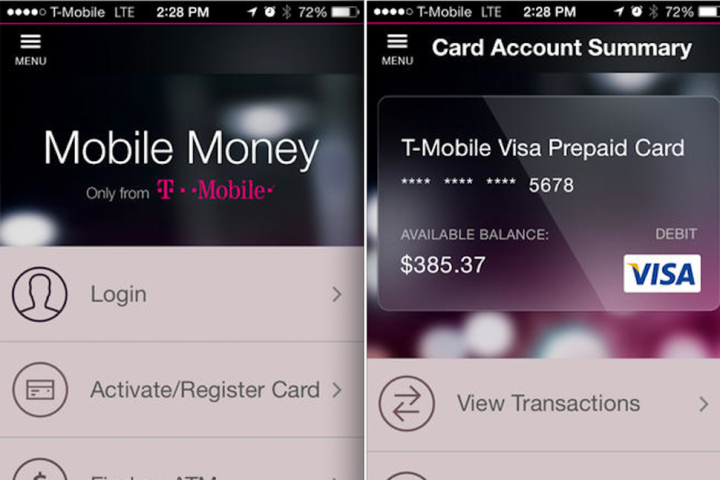
It looks like T-Mobile isn’t close to running out of new and crazy Uncarrier ideas. T-Mobile has announced a new Mobile Money service for customers, allowing subscribers to use T-Mobile as their own miniature bank for paying bills and even sending checks.
The concept behind Mobile Money is pretty straightforward and will remind you of other prepaid banking services like Serve or Simple. The service is meant to allow T-Mobile customers to easily keep money on their account so they can pay their bills even if they don’t have an account with a bank or branch. T-Mobile’s goal is make bills easier to pay with its customers, while offering a safe place for their money, since the service will be partnered with a real bank.
Mobile Money, a simple and straightforward service for T-Mobile customers, is still feature-rich. Users can take advantage of a prepaid Visa debit card, free checks, direct deposit, and other services you’d expected from an online banking service like American Express’s Serve.
T-Mobile VP Andrew Sherrard said T-Mobile doesn’t want to make money with this service. T-Mobile’s goal is simply to help out their customers pay their bills on time without worrying about crazy fees. We have to admit it’s nice for T-Mobile to offer the service to those who want it, but it’s also a way T-Mobile hopes to encourage customers to pay their bills on time and remain loyal. We’re not sure what happens if you choose not to pay your bill. Does T-Mobile then take the money in your Mobile Money account?
This latest “Uncarrier” feature of T-Mobile certainly is unorthodox – in fact it makes T-Mobile sound more like Google and that the company wants to branch out beyond the world of wireless service. One thing it proves, yet again, is that T-Mobile marches to the beat of its own drummer.
Editors' Recommendations
- The best Samsung Galaxy S23 deals from every carrier
- AT&T reveals cause of Thursday’s massive outage
- T-Mobile just set another 5G speed record
- The T-Mobile Tuesdays app is about to get a big upgrade
- ESR Black Friday deals: Up to 60% off wireless power banks, cases, and more


